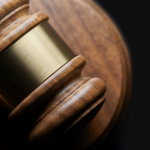The recent conviction of Cardinal George Pell on five counts of child abuse has shaken the Roman Catholic Church in Australia and around the world. Cardinal Pell was Australia’s most famous Roman Catholic leader—elevated to a position of high responsibility in the Vatican after a significant career in Australia, which including serving as Archbishop in Australia’s two largest cities, Sydney and Melbourne.
Yet, despite the shock of his trial and conviction, it is probably true to say that Cardinal Pell was already one of Australia’s most hated and derided clerics. He was well known for his opposition to same-sex marriage. He represented an institution which had (as found by the recent Royal Commission into Institutional Child Abuse) provided a home for those who abused children, and which had been plausibly accused of covering up this abuse.
Cardinal Pell was already one of Australia’s most hated and derided clerics. He was well known for his opposition to same-sex marriage. He represented an institution which had (as found by the recent Royal Commission into Institutional Child Abuse) provided a home for those who abused children
In those circumstances, when an accusation emerged that Cardinal Pell himself had, not just sheltered such people, but committed child abuse himself, it was always going to very difficult for him to have a fair trial. The public mood was poisonously hostile toward Roman Catholic clergy—and especially toward Pell himself, who had often been perceived as arrogant in his media appearances. People were all too eager to believe the worst. Indeed a book had been released not long before the formal trial, strongly suggesting that the Cardinal was guilty of concealing known child abuse, as well as of committing actual abuse, including the abuse at issue in the trial. Although the book was withdrawn from sale in Victorian bookshops when the trial commenced, the possible impact on potential jurors was clear.
Yet … with all that said, the Cardinal was tried before a jury of 12 (after an earlier jury had been unable to reach a verdict), and he was found guilty of child abuse, committed against two victims on two separate occasions.
How should we think about this case in light of the Bible’s teaching?
1. There but for the grace of God…
The first and most obvious point is this: that the Bible teaches that all of us are sinners—rebels against our holy God—and that we are all prone to express that rebellion in the way we treat other people. No human being, with the single exception of the Lord Jesus Christ, is free from the taint of sin or the temptations of sin. No human leader, however admired, is immune from the danger that they may sin against others in a variety of ways—sometimes in terrible and harmful ways. Examples of serious sin committed by respected leaders of God’s people can be found in the Old Testament:
- in Abram’s lying about his marriage to his wife Sarai when in Egypt (Gen 12:10-13);
- in the sons of Eli the priest abusing their position to have sex with those serving in the tent of meeting (1 Sam 2:22);
- in David, God’s chosen King, lusting after another man’s wife and then having her husband killed in battle (2 Sam 11).
None of us, high or low, is immune from sin. Every one of us needs God’s forgiveness—forgiveness that can only be received through faith in the one sinless man, Jesus Christ, who died for our sins and rose again for our justification (Rom 4:25).
There is no doubt that Cardinal Pell may possibly have done the things he has been convicted of. Beloved Christian leaders have done terrible things in the past.
2. Our justice system is a gift of God
It is easy to cynically denounce those who administer justice in our society as corrupt and wicked. But Paul tells us that justice systems are gifts given by God for our good.
For there is no authority except from God, and those that exist have been instituted by God (Rom 13:1, ESV)
Paul’s logic in Romans 13 becomes clear when the chapter is read together with Romans 12. There he says that we must not personally repay anyone evil for evil (12:17), and that we should not avenge ourselves, “but leave it to the wrath of God” (12:19). In part, this refers to God’s wrath against sin at the end-time judgment, but chapter 13 shows that it includes the justice system as God’s instrument of wrath:
For he [the one in authority] is the servant of God, an avenger who carries out God’s wrath on the wrongdoer. (Rom 13:4, ESV)
Whether they know it or not, police, prosecutors, lawyers, magistrate, judges, jurors and gaolers are gifts to humanity, and all do their part in carrying out God’s purposes to restrain evil. We should be grateful for our criminal justice system.
Whether they know it or not, police, prosecutors, lawyers, magistrate, judges, jurors and gaolers are gifts to humanity, and all do their part in carrying out God’s purposes to restrain evil. We should be grateful for our criminal justice system.
Indeed, in response to the sentencing remarks given by Chief Judge Peter Kidd, commentator Waleed Aly made this powerful point, which is consistent with Paul’s words noted above:
There’s a reason we do not leave justice in the hands of victims. And there’s a reason we give it over to the formal, rule-laden, stuffy theatre of the courtroom. Justice often requires passions to be controlled because it is not simply about punishment. It is also about dignity.
That’s very easy to understand when it comes to the dignity of victims. In some sense, the entire process of prosecution is meant to serve that ideal, even if the law sometimes fails in that task. What’s much harder to grasp is the importance of the dignity of the criminal.[1]
3. Human systems can make mistakes
To say that the justice system is instituted by God, does not, however, mean that its decisions are always perfect. Our system of justice contains appeal mechanisms precisely because of its potential for failure.[2] Thus, as readers will be aware, Cardinal Pell’s legal team have appealed his conviction. As is often the case with successful appeals, the appeal includes allegations that Judge Kidd made errors of law in the trial. But, since this is a criminal case, there is also a broader ground of appeal: that the jury verdict is “unsafe and unsatisfactory.” What this means, in broad terms, is that the evidence presented to the jury, in the view of the appeal court, should not have been sufficient to persuade the jury that defendant was guilty “beyond reasonable doubt.”
The guiding authority on this ground of appeal in Australia at the moment is the decision of the High Court of Australia in M v The Queen [1994] HCA 63; (1994) 181 CLR 487. There the court said:
The question is one of fact which the court must decide by making its own independent assessment of the evidence and determining whether, notwithstanding that there is evidence upon which a jury might convict, ‘none the less it would be dangerous in all the circumstances to allow the verdict of guilty to stand’…
Where, notwithstanding that as a matter of law there is evidence to sustain a verdict, a court of criminal appeal is asked to conclude that the verdict is unsafe or unsatisfactory, the question which the court must ask itself is whether it thinks that upon the whole of the evidence it was open to the jury to be satisfied beyond reasonable doubt that the accused was guilty. But in answering that question the court must not disregard or discount either the consideration that the jury is the body entrusted with the primary responsibility of determining guilt or innocence, or the consideration that the jury has had the benefit of having seen and heard the witnesses. On the contrary, the court must pay full regard to those considerations. (at 492-493)
In ruling on an appeal made on this ground, the appeal court will have to make its own assessment of the evidence presented to the jury, paying due regard to the jury’s advantage in seeing and hearing the witnesses in person.
A recent appeal
A recent decision of the Victorian Court of Appeal, Tyrrell v The Queen [2019] VSCA 52 (15 March 2019), provides an example of how the court undertakes that task. This case was also a conviction for historic child sex abuse; involving a member of the Christian Brothers order (a teacher at the time), and pertained to events alleged to have occurred in 1965 and 1966. The conviction was based solely on the testimony of the complainant, whose evidence was, in the end, found to be inconsistent—making the allegations inherently improbable. The conviction was overturned as unsafe. This Twitter thread from Professor Jeremy Gans, an academic at Melbourne Law School, discusses Tyrrell and notes nine previous cases in the last 3 years where the Victorian Court of Appeal has overturned a conviction as “unsafe”.
Each case is different, of course, and the appeal court will come to its conclusion based on the evidence presented in Cardinal Pell’s case, not on any other. Nevertheless, it has to be said that there are a number of similarities between the two cases. I won’t rehearse them here, but other commentators from both within and outside the Roman Catholic church have described some of the features of the alleged events involving Cardinal Pell as inherently improbable: see, for example, this piece by Father Frank Brennan, and this comment from a crime writer, John Silvester.
To say that the verdict might be overturned on appeal is not to disrespect the jury. They are required to do the best they can in a difficult situation. But the appeal process allows senior judges to offer a more measured review. They check that the “beyond reasonable doubt” principle has been upheld—a principle which, as the court in Tyrrell noted, at [160], represents “the highest standard in our justice system … a linchpin of our system of criminal justice.”
Immense pressure
The judges hearing Cardinal Pell’s appeal (set down for June 5-6) will have a difficult task. There will be immense pressure from around Australia and around the world for them to, on the one hand uphold, and on the other hand overturn, the original verdict. We should be grateful that Australia has a fine tradition of independent and fearless judges who hand down decisions based, not on their own personal feelings, nor the politics of the day, but on their view of the law and the facts. We should all be praying for these judges that they will follow the pattern given by God to the judges of Israel:
‘Hear the cases between your brothers, and judge righteously between a man and his brother or the alien who is with him. You shall not be partial in judgement. You shall hear the small and the great alike. You shall not be intimidated by anyone, for the judgement is God’s.’ (Deut 1:15-17).
[1] https://www.theage.com.au/national/victoria/this-is-why-we-don-t-leave-justice-in-the-hands-of-victims-20190314-p5143p.html (March 4, 2019)
[2] This was true even in Paul’s day, where he was able to use elements of the Roman system to receive a better hearing because he was a Roman citizen (Acts 16:37, 22:25), and to appeal to Caesar against an unjust decision of a lower tribunal (Acts 25:11).














